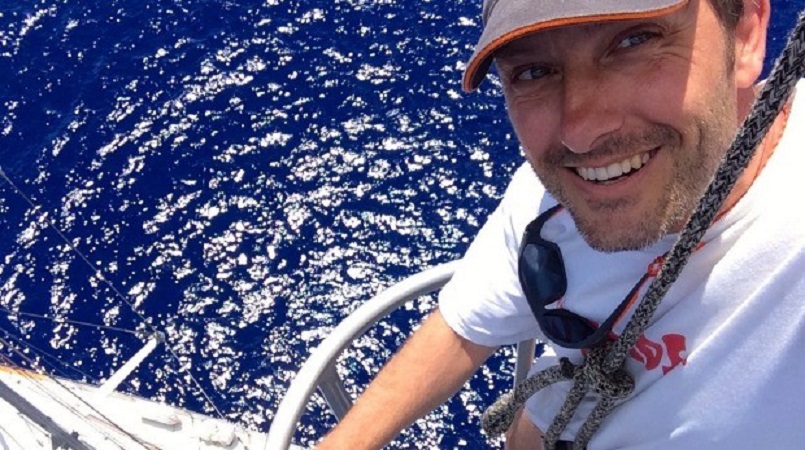
A Nelson scientist witnessed firsthand the dire effects of global warming and El Nino on Pacific coral reefs on a recent research mission.
Nelson Cawthron Institute research scientist Dr Xavier Pochon returned from a Pacific expedition on board the ship of late Sir Peter Blake.
He was on board the ship for 10 days in the Tuamotu Archipelago, east of Tahiti, researching crustose coralline algae and the effect of climate change on corals in the Pacific.
The research so far showed the Polynesians reefs, which were thought to have been spared from the effects of climate change, have suffered multiple deep disruption.
"This year has been a massacre across the Pacific," Pochon said. "This is as bad as the bleaching that took place in 1998, which was devastating and led to massive coral mortality throughout the Pacific."
Coral bleaching is the phenomenon through which coral expel the algae living in their tissue when the water is too warm, causing the coral to turn completely white.
Bleached corals in the southern Great Barrier Reef in January 2002. During such events, corals expel the algae that provide much of the energy they need to grow and reproduce.
Pochon said in the past corals had to go through similar events of disruption, however, the disruptive events were now more frequent and the increase in water temperature more than usual.
"I got there and I was really expecting beautiful reefs and fishes and it was really quite devastating to see that in most of those reefs across the Tuamotu there was more than 90 per cent coral mortality.
"And you could still see all of the remaining structure [of] everything that was a brilliant, colourful reef six months ago."
He said this year's El Nino - an annual natural phenomenon that temporarily changes the climate of the Pacific Ocean - had increased and enhanced the usual change in temperature to a point of no return.
"It has pushed up the temperature to thresholds that corals cannot sustain.
"Corals are really sensitive to increase of temperature, that's the main factor for them to be completely destabilise."
But Pochon said the future of the Pacific reefs wasn't all doom and gloom.
"There is definitely a hope that within the next year or two the temperature will stabilise to allow some of these dying reefs to actually recover.
"What we don't know - and what's really concerning to scientists - is if this increasing frequency in heat waves in the ocean allow enough time for the reefs to adapt or recover."
He was on board the Tara, the 36 metre long vessel formerly known as the Seamaster, used by New Zealand explorer Peter Blake when he was murdered by Amazon pirates in 2001.
The expedition was part of a large research initiative called Tara Pacific, a 2.5 year programme that examines the biodiversity of coral reefs and their evolution in response to climate change and human activities.
Pochon said he was asked to join the crew because of his previous experience researching Symbiodinium, a single cell algae which are found within the coral.
The Tara is on its way to Japan at the moment but will come back to its home base in Auckland in mid-June and will be docked in the marina.
It will then continue its journey back across the Pacific along the China coast to Hawaii, the Panama Canal and finally back to France.
